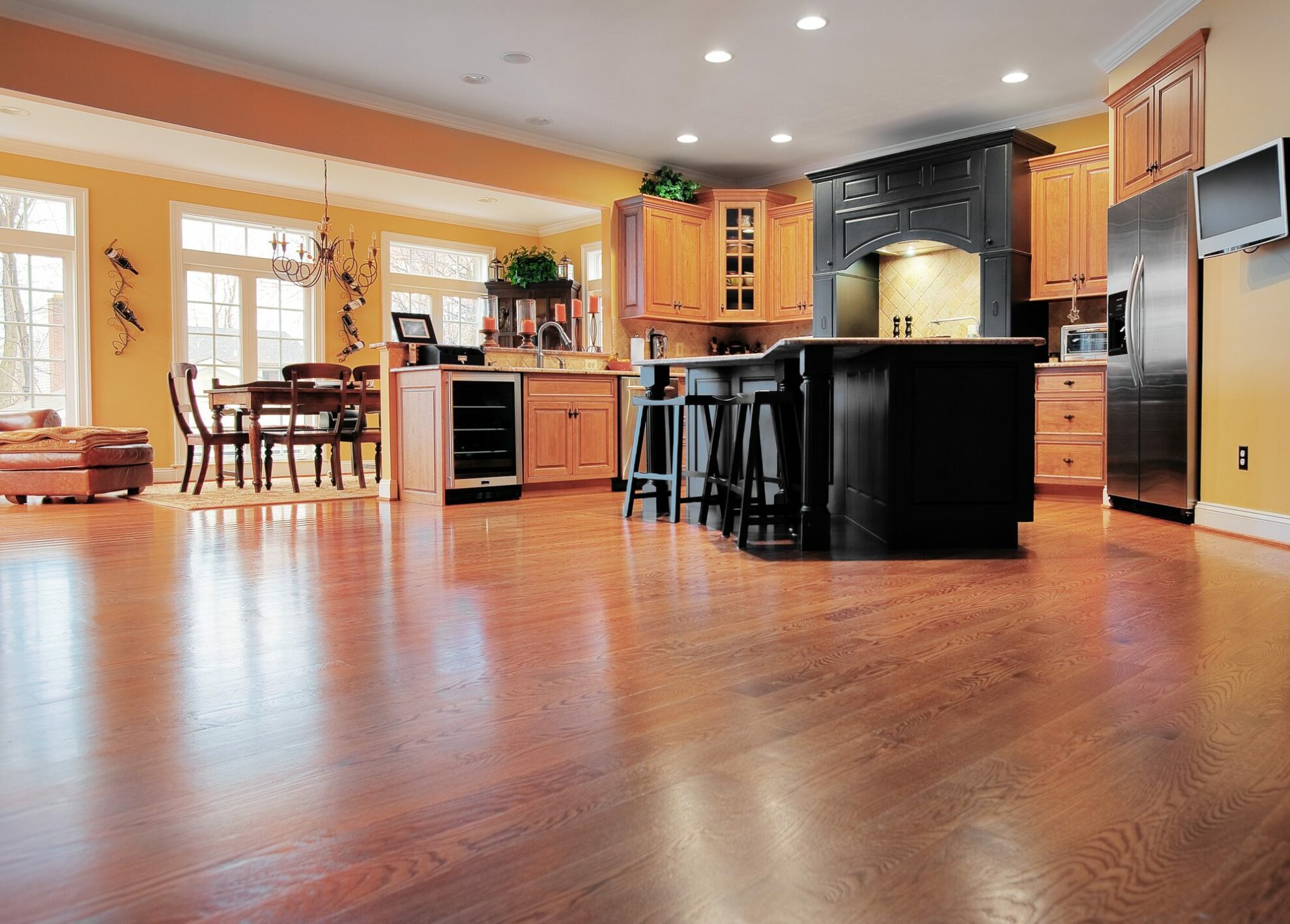Hardwood is one of the most popular flooring options on the market. It’s sustainable, gentle on your feet, and comes in an array of warm colors that instantly add a homey feel and natural touch to any space. Although it’s stylish and usually quite durable, hardwood flooring doesn’t do well in wet and moisture-prone areas. So is hardwood flooring suitable for kitchens?
The Pros and Cons of Kitchen Hardwood Floors
Whether hardwood flooring is the best option for your kitchen depends on a variety of factors. Here’s a list of pros and cons to help you decide if kitchen hardwood floors are for you:
The Pros
Hardwood floors in the kitchen are:
- Naturally beautiful: hardwood floors are available in an endless array of warm, natural color palettes and grains that can work with pretty much any decor style. Whether you’re designing a mid-century, traditional farmhouse, or contemporary kitchen, there’s a hardwood grain and color that will fit. Also, these floors grow better with age since you can refinish them to achieve various looks over the years.
- Durable: although hardwood floors often fare poorly in wet or moisture-prone settings, some types of hardwoods such as the Brazilian Walnut are more durable and are an excellent flooring option for traffic-prone areas like kitchens. Be sure to check out the Janka hardness rating to determine the durability of the hardwood type you want to use in your kitchen.
- Gentle on your feet and your health: unlike ceramic or tiles, hardwood floors are naturally soft and warm. This makes them easier on your feet, especially if you spend a lot of time standing while you cook. Also, since they’re easier to clean and don’t trap dust, hardwood flooring in the kitchen is an excellent option for anyone with allergies, asthma, or similar conditions.
The Cons
Despite the pros, kitchen hardwood floors are also:
- Vulnerable to damage: although some hardwoods are naturally durable, they’re still water and moisture-sensitive. This means they will warp or split when exposed to moisture. Hardwood flooring is also incredibly susceptible to scratching and denting when it is installed in high-traffic areas.
- Requires maintenance: kitchen hardwood floors need constant refinishing and sealing to keep them in tip-top shape.
Are Hardwood Floors in the Kitchen Good?
Taking the above pros and cons into consideration, your final decision regarding kitchen hardwood floors depends on two main factors.
The Type
As noted earlier, some hardwoods are more durable than others. Therefore, the type of wood plank matters.
For instance, although they come finished and ready to use, solid prefinished hardwood planks are often a problematic choice. This is because they typically feature beveled edges, which moisture can easily seep into. On the other hand, engineered planks are durable and easy to install, but can also be expensive.
Therefore, solid unfinished hardwood planks are usually the best option. They can be refinished multiple times, and with the proper sealing, staining and maintenance, moisture and water won’t be much of a threat.
Foot Traffic
If you regularly cook and entertain in your kitchen or if your home’s deck and swimming pool traffic comes straight through your kitchen, hardwood flooring might not be ideal. This regular foot traffic makes hardwood more prone to scratches and dents, and it exposes floors to more frequent water spills that may go unwiped for hours. However, if foot traffic is minimal and you wipe spills up immediately to prevent damage, kitchen hardwood floors can be the perfect choice for your home.
Should You Use Hardwood Floors in Your Kitchen?
In conclusion, hardwood flooring in the kitchen looks good, and it can make your space feel bigger by creating a cohesive look between your kitchen and other rooms. It’s also sustainable and can be quite durable with proper care and maintenance. Need help choosing the perfect kitchen hardwood floors for your home?
Get in touch with our team today to schedule a free estimate.

